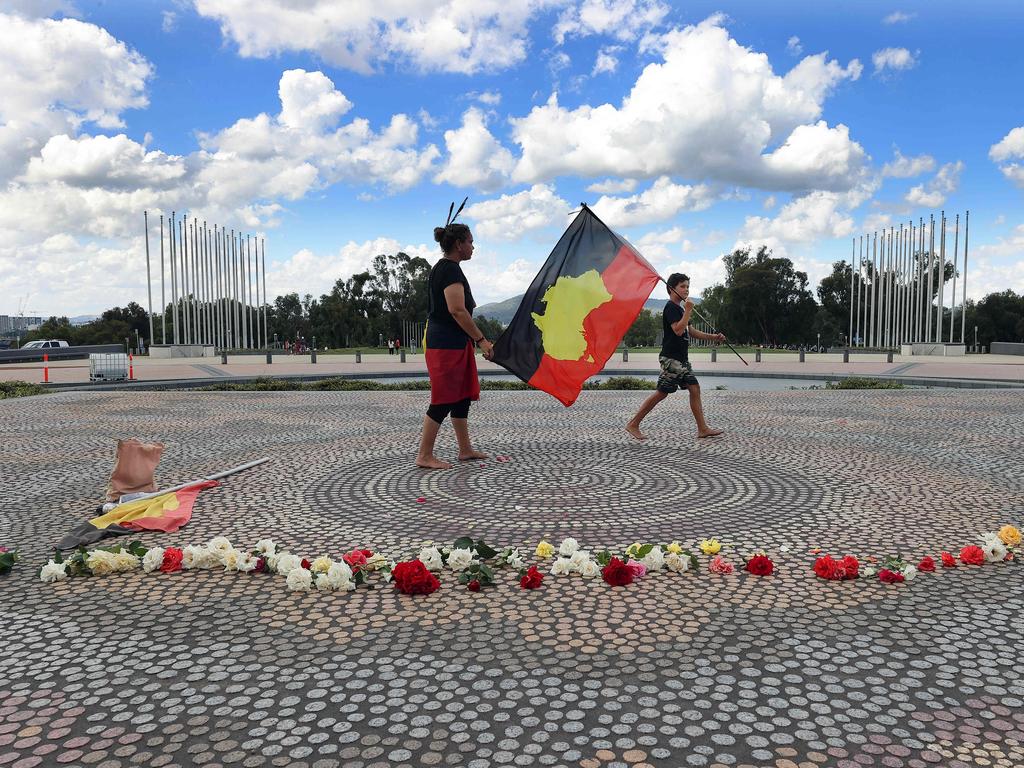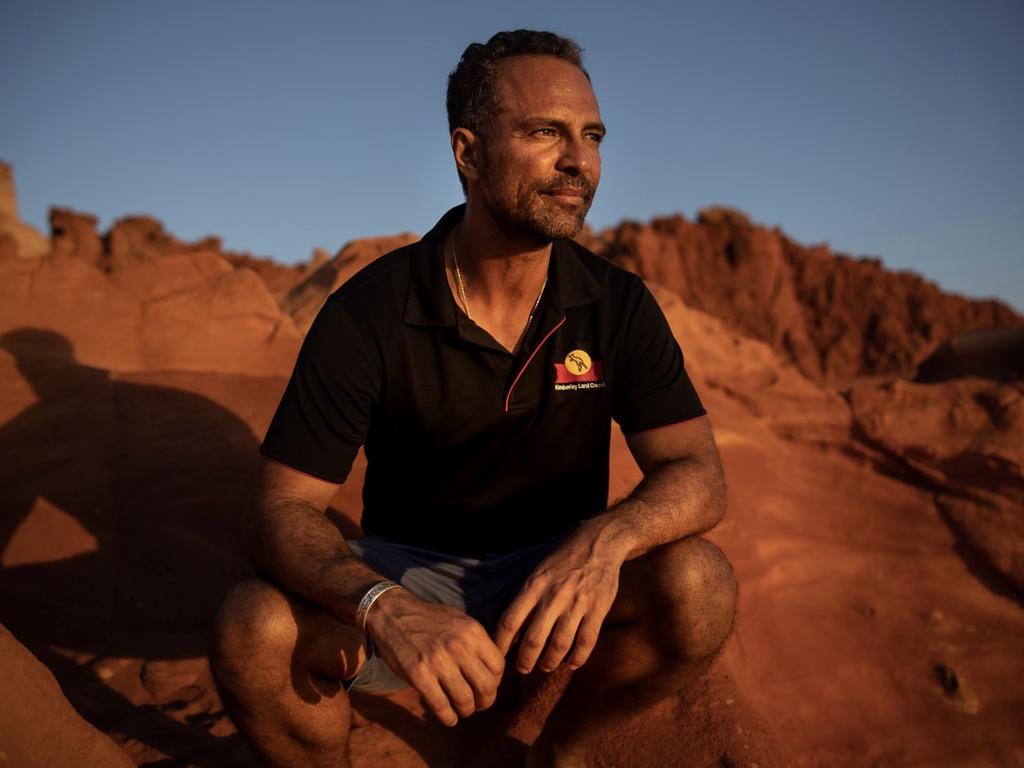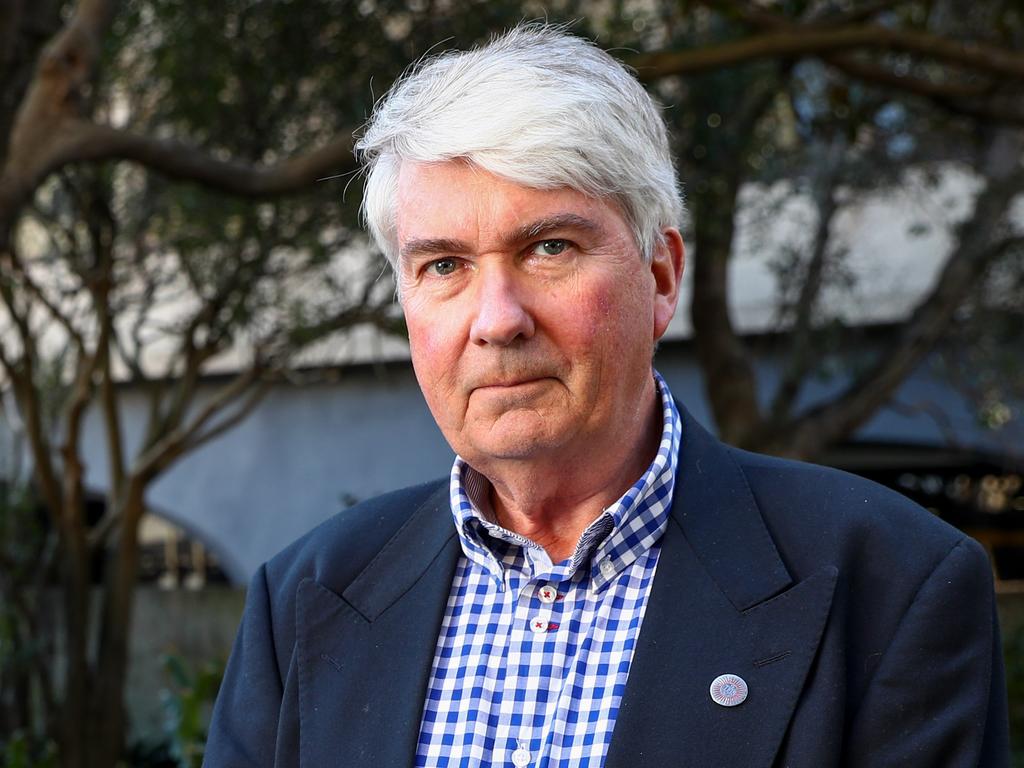Greg Craven: Why I will join Julian Leeser in Indigenous voice to parliament Yes push


But occasionally, just occasionally, I can change my mind. Not because I am ever wrong but because circumstances have failed to accommodate themselves to my wishes.
I have changed my mind on my position in the upcoming referendum on the Indigenous voice.
I was in the room when it was devised a decade ago and have always publicly supported the concept. But as I watched the Albanese government push it in problematic directions, I faltered. I decided to stand aside during the referendum. I would vote for it but not campaign.
It is never easy to change course, particularly when your arguments – obviously – are right. But it has been apparent for some time that I was not going to get my way. Reality has muscled up to me.
The position in Australian constitutional politics now is that you are either for the voice or against it. I am for it.
This means I cannot stand smugly by and watch it lose. Until the alteration bill is passed by the parliament, I will continue to politely urge my concerns and push for sensible changes.
But come the referendum, I will campaign for the voice with all my heart and whatever remains of my brain.
BEST OF VOICE OPINION:All our commentators weigh in on the Indigenous voice to parliament
The first reason is the most fundamental. The voice is a great moral imperative. Anyone who believes this has no choice but to support it.
For me, the moral logic of the voice flows deeply from my Catholic faith. All people are given life by a loving God, who demands they be able to live it to the fullest. It is clear to me that Indigenous people never have had that right, and still do not have it.
It also is clear that a constitutional voice will deliver vast symbolic recognition of their equal citizenship in our common-wealth, is calculated to facilitate expression of their vital concerns, and through that resolution of those concerns. The moral payload is inescapable.
It is no coincidence that so many conservative supporters of the voice come from explicitly Christian or Jewish traditions.
There will be cynics who say religious morality should play no part in policy or constitutional design. These usually are the same people who praise the Judeo-Christian ethic as the foundation of the common law and Western civilisation.
There also will be those huffily affronted that they are accused of being immoral. They are not. I act on my precepts, and others act on theirs. This is conversation, not condescension.
So by reference to my basic moral perception, people like me are bound to compromise. We must accept a certain degree of constitutional disappointment in return for the achievement of a great constitutional goal.
Some conservatives will haughtily declaim that compromise is inexcusable in constitutional design. They usually cite as examples our own revered founding fathers. Rot.
Our constitutional progenitors were compromisers to a man. Some believed in the states but did not want responsible government. Others detested the states but adored responsible government. Our Constitution embodies both, and is one huge monument to constitutional compromise. Vive le compromis! But my position is not all ethics. I have been horrified by the recent performance of the Coalition around the voice.
Peter Dutton is a decent, intelligent man. I believe he came to this debate with a mind as open as his political situation permitted. But he has been mastered by his circumstances, preconceptions and his colleagues.
The timing of the Coalition’s declaration on the voice made zero sense. It obviously was a jerky reaction to the Aston by-election loss, an attempt to look tough.
But one is not tough by looking tough. Being tough actually means refusing to be mastered by transitory adversity. In two months, no one will remember Aston except Antony Green.
Yet some people will very clearly remember Dutton’s attempted throttling of the voice. These will include millions of millennials already deeply sceptical of the Coalition. Oppositions do not win elections by assuring the votes of people who already vote for them, but by persuading others.
The other remembering bloc will be the teals. They are always on the lookout for a new stick with which to belabour the Coalition. Nothing could serve better in Zali Steggall-land – or any precarious middle-class Liberal seat – than a voice assassination.
Again on the issue of timing, why would the Coalition declare its outright rejection immediately before the joint select committee into the bill begins its hearings? Dutton had rightly declared those hearings to be vital to the proper consideration of the voice.
In terms of due process, the Coalition now is in much the same boat as a government that hatched the voice without public exposure or design. What are Coalition members to make of their role on a committee already dismissed by their own leader?
The oppositions’s stance on a conscience vote has been just as dismal. There is endless discussion over what is or is not a “conscience” or a “free vote”, and when it should be accorded. So let’s just call this a “morality vote”.
Why would a party of liberal-conservatives seek to coerce the moral conscience of any of its members? How is this consistent with the notion of freedom on which their political philosophy stands?
Worse in practice, this desertion of liberal principle caught only one person, former frontbencher Julian Leeser. But oh, what a person. His principled, dignified resignation without recrimination hangs like a judgment over his fellow Liberals, not a desertion.
It bookended the departure of former Indigenous affairs minister Ken Wyatt. If Leeser was unbroken, the blameless Wyatt was broken-hearted. After decades of seeking Aboriginal empowerment, his situation was not pitiful but pitiable.

Mind you, it is a tribute to the ghastliness of some government members that they tried to weaponise Leeser’s departure as weakness in the face of parliamentary biffo from Albanese. The weak do not defy the might of their party, or walk away from a frontbench position on principle.
The entire political approach of the Coalition to its referendum argumentation has been inspiringly clueless. I do have a small personal axe to grind here. Across the spectrum, Coalition MPs have selectively cannibalised my own criticisms of the referendum wording, without any admission that I have on every possible occasion stated I still supported the voice.
I do ponder with some small amusement what they will do now that I actively campaign for the voice. I sincerely hope to be cancelled. But the worst of the Coalition’s performance has been its comprehensive abandonment of conservative philosophy and practice over the voice.
As Edmund Burke, Alfred Deakin and Robert Menzies all so aptly demonstrated, conservatives are not reactionaries. They are not wreckers. They are not right-wing nut jobs.
Their role is to test, refine and pace change, not instinctively oppose it. They will force good change to prove itself, and weakly thought-out change to be improved.
Bad change they will oppose, but always in a way that even if it succeeds, it is better than it could have been. The Liberals and Nationals have abandoned this approach. Their outright rejection has dealt them out of the voice debate. They have ensured that whatever gets up at referendum will be subject to no moderating conservative influence.
This has been a massive problem throughout the formulation of the voice. In seeking to influence the Albanese government, constitutional conservatives had nothing to offer. The Coalition proffered not even the lowest card.
For this multitude of reasons, I would expect to be working with a wide group of conservatives – including members of parliament – who would bring a true conservative perspective in favour of the voice. I would expect all of us to work closely with Indigenous leaders and other strong supporters of the voice.
Of course, as a matter of practicality, a hostile Coalition now has to offer its own competing model. It seems to have gone to the constitutional op shop and bought a remaindered copy of Warren Mundine’s Recognise a Better Way.
This is not so much a model as an extended complaint. Its main point is that it does not like the voice, for all the usual reasons. There are only four operative parts to its portfolio.
The first is establishing some focused parliamentary committees, which is fair enough.
The second is the hope that the situation of Indigenous people will somehow improve if we do not have the voice but do talk a lot about communities, practicality and improvement on the ground. It is like believing that reciting some hippie mantra will lead to personal perfection.
The third limb of the Mundine proposal is singular. He wants Indigenous recognition in the Constitution’s preamble.
Apparently he also is open to any number of other preambular recognitions, starting with migrants and possibly ending with Skyhooks.

Assuming the Coalition adopts this position, it will foster about the only constitutional option more conducive to its professed fears than the Albanese voice.
Preambles are the lymph glands of a Constitution. In the hands of an activist High Court, their vague terms can pump wilful misconstruction into any section of the Constitution. Just ask American constitutional scholars. So exactly what preamble recognition of Aboriginal people are we talking about, and in what words? What fulsome recitals will we have about migrants? Who else will get a guernsey, what will it all mean and what will the courts make of it?
No wonder Tony Abbott joined me during the 1999 Constitutional Convention on the republic to oppose a fulsome preamble. And now supports one.
The fourth limb of the love-child of Mundine and Dutton is the only one that can run, though admittedly in circles.
This is the proposition that no effective change can be achieved without empowered groups on the ground. True. But without an overarching national body to feed into, this is a house with foundations but no roof.
Mind you, Anthony Albanese has a national voice with no developed regional structure, so he presents a dwelling with a roof without foundations. Only Leeser has a detailed model for a national voice based on regional bodies, producing a house with foundations, roof and walls, and maybe windows.
There is a final raft of reasons that should prompt support of the voice by true conservatives. There remains a good chance of improving it, the role of conservatives throughout the ages. After all, the Prime Minister constantly says he is open to changing the words.
This opportunity is very clear in the vexed issue of executive power. Of course, no one should naively suppose that the government – with the exception of Attorney-General Mark Dreyfus – might be moved by actual constitutional principle. But expedience is a different thing. The current wording will impose many, many restrictions on the executive government. Into the foreseeable future, the challenge for Albanese is that he is the executive government.
The Prime Minister already has shown some nervousness here, declaiming that decisions such as those of the Reserve Bank on interest rates certainly would not draw representations from the voice, that entirely general laws would not be caught, that the voice would not attach to cabinet decisions and would not itself have an extensive staff.
But Indigenous leaders – as is their right – have strongly expressed contrary views. There is a clear gap between Indigenous suppliers and the government consumer.
As a matter of sensible self-interest, Albanese might be up for a mild tweak here. It is unlikely he would go for Leeser’s total elimination of representations to executive government, though that would solve all his issues with a single swish.
He might, however, ponder a very few extra explicatory words, as once proposed by his own Attorney-General. Surely, supporters of the voice would not desert it for a handful of syllables.
Albanese also might be wondering about the scope of the voice, given his worries about general laws without any express Indigenous focus. Perhaps a strategic side shuffle to laws having a special application to Indigenous people might be in order.
Again, probably not. But if Albanese were thinking of any small modification, he has the perfect opportunity in the joint select committee considering the constitutional alteration bill. That committee is controlled by the government but with a sizeable Coalition minority, so the opportunity for a deal is there.
Regardless, there is still a very substantial responsibility for Coalition committee members. They have the last remaining opportunity to act as true conservatives, improving the imperfect, restraining the just plain wrong.
They should strive to produce specific, refining options that just possibly might interest the government, and move the Coalition to some small, belated, positive action.
There is another, perhaps more plausible forum for a conservative contribution to voice design.
Assuming the referendum is passed – hardly a safe bet – there will need to be a raft of implementing legislation. This will be the pointy end for the government. This is where practical executive restriction begins.
Indigenous leaders have made strong demands of process and substance. Some want detailed legislation drafted by Indigenous-only constitutional conventions. They have views on methods, terms and duration of voice appointments.
This is where conservatives can make a real contribution if the government is sensible enough to let them. Paradoxically, it is pro-voice conservative organisations that have done the most thinking on the structures and operations of the voice, as opposed to constitutional underpinnings. This includes my own outfit, Uphold and Recognise.
There are some interesting ideas that could offer design balance to a thoughtful executive. In terms of process, would it not be better for general outlines – rather than instructions – to be endorsed by conventions at least partly open to all Australians? Should parliamentary committees be extensively involved? As to focus, should the voice have mandated priorities reflecting Closing the Gap imperatives, rather than potentially concentrating on generalities? Should it be required to always pursue positive, on-the-ground improvement, rather than theoretical advantage?
Structurally, should the voice have long terms or short? Could it be that members serve only a single term, in the interest both of limiting capture and widening participation? How can modern learning on structural design help?
All of these are questions the government needs to be thinking about now, rather than after the passage of a successful referendum. Conservatives of goodwill and expertise could offer much.
But here, like my religious nemesis Luther, I myself stand. I will argue, campaign and if necessary bleed for the voice, as I sadly did for our failed republic. I can do no other.
Emeritus professor Greg Craven is a constitutional lawyer and former vice-chancellor of the Australian Catholic University.







I am not a responsible or a reasonable man. I am a conservative constitutional lawyer. My opinions are like easily provoked German shepherds, released daily to savage my opponents.